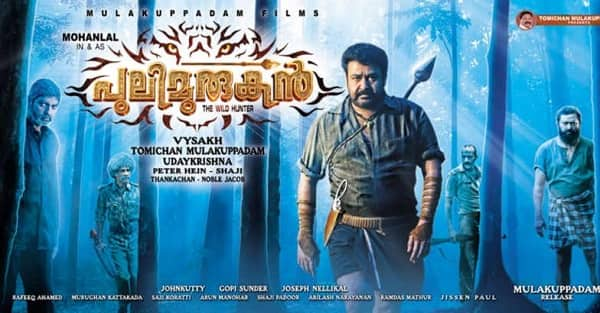

The film is set almost entirely in jungles, thus giving cinematographer Shaji Kumar plenty of opportunities to rob us of our breath with the visuals he lays out on screen. There are many clashes in this film, all of them involving the hero, of course, though none with leopards: clashes between Pulimurugan and tigers, between him and the authorities, him and his beloved but short-tempered wife, and ultimately, between him and the human villains of the story.

The title – derived from the hero’s nickname – literally means Big Cat Murugan / Wildcat Murugan / Leopard Murugan.

Now an adult, he is a legend of sorts among the local populace although the Forest Department is constantly on the lookout for him. The root cause of his animosity towards the big cat is the killing of his father at the hands of one such beast. Pulimurugan, as the grown-up Murugan is known, is willing to sacrifice everything to protect his people, because they gave him shelter when he and his infant brother were orphaned. When it's The Lord of Mollywood Vs The Lord of the Jungle, what does a star devotee care? It would take a hardcore Lalettan admirer to ignore his expansive frame here as he battles human-eating tigers in a forest in Kerala. That film, despite its flaws, was credible and to the senses in comparison. Pulimurugan is similar to such adoring viewers – it is loud, it merits attention to the extent that it is entertaining, and it needs to be called out when it is crass (which, sadly, it often is).ĭirector Vysakh’s latest spiced-up venture comes to theatres shortly after Priyadarshan’s Oppam which starred Mohanlal as a blind man falsely accused of a crime.


 0 kommentar(er)
0 kommentar(er)
